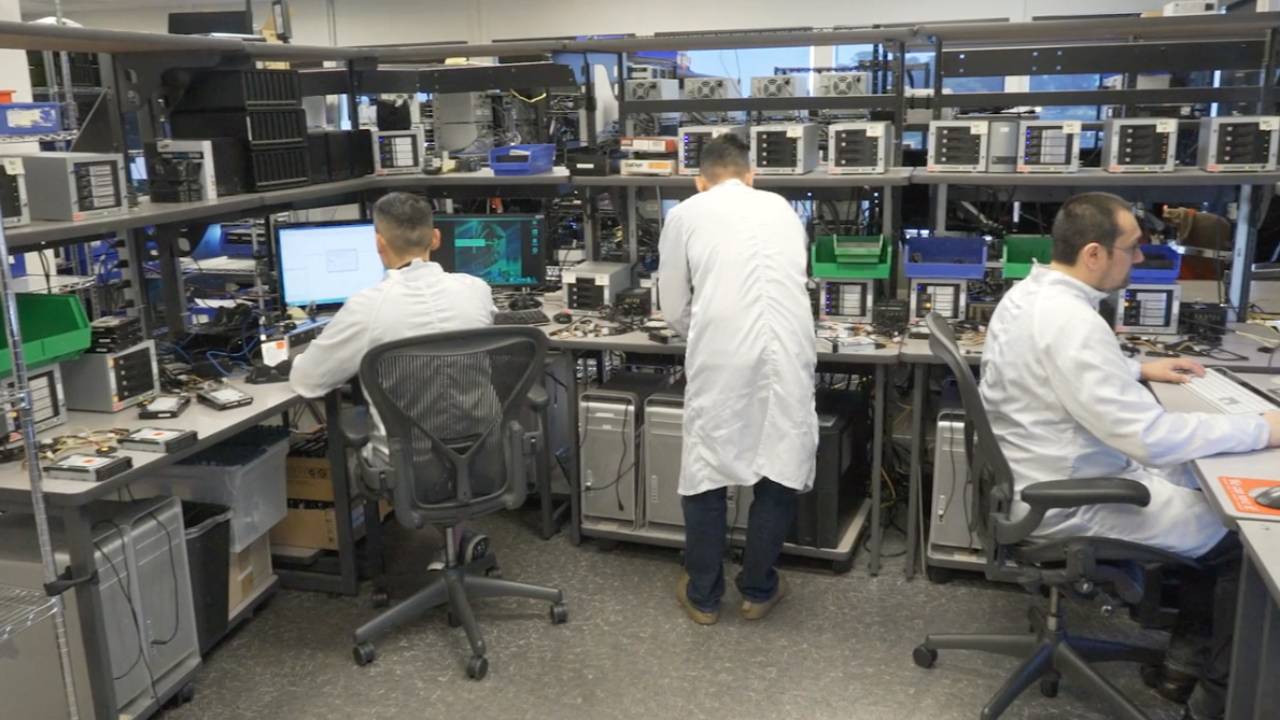World's First Apple M1 Data Recovery, Firm Claims
DriverSavers: 1, Apple: 0
California data recovery company DriveSavers has claimed the first success in recovering data from encrypted but severely damaged Apple computers featuring the M1 and T2 chipsets. In a recent press release, the company details how it transplanted chips from damaged Macs into new boards to access the data stored within them.

While the M1 handles its own security, the T2 is a variant of the iPhone 7’s A10 SoC that was embedded in Intel Macs beginning in 2018; it provides Touch and Face ID services, encrypts the SSD, and allows secure boot.
The company hedges its bets slightly — it only claims it ‘may’ be the first in the world to achieve M1 data recovery, but the modesty ends there. “The talent and expertise of DriveSavers data recovery engineers are unmatched,” said director of engineering Mike Cobb, who’s clearly proud of where he works (the lab, pictured above, looks remarkably like the Tom's Hardware offices).
“DriveSavers is hands-down the most capable at recovering data from these ultra-advanced, ultra-secure devices,” Cobb continued, before presumably having to retire due to excessive hyperbole.
Oratorical flourishes aside, this is an interesting claim because a Mac’s SSD is pretty hard to get to for the average man with a screwdriver. Not only is the data in an M1 Mac encrypted by default, the SSD controller is embedded inside the M1 CPU as part of the SoC design — meaning that if that chip is damaged, there may be no way in. This is where the transplant technique comes in, but there's another problem: the devices employ high-security protocols in which specific components need to remain connected to each other via the logic board for data to be accessible.
“There are thousands of surface-mounted micro-components on a logic board, and Apple has done their best to obfuscate what is necessary to gain access to the encrypted data,” claims DriveSavers’ press release. The company has been at this since 1985, so has had plenty of time to develop the microsoldering techniques necessary to reconnect components in damaged flash memory, including Apple’s popular phones and tablets.
DriveSavers, whose other clients include Google, Lucasfilm, and NASA — along with a remarkable number of celebrities who have apparently been careless with their devices — operates a certified class-5 clean room in which to carry out its invasive operations, preferring not to add additional microscopic damage to already traumatized hardware. It writes a good press release, and, if its claims are true, could provide a way back for mission-critical data housed on a damaged Mac, as well as underlining once again the importance of a vigorous backup strategy.
Get Tom's Hardware's best news and in-depth reviews, straight to your inbox.

Ian Evenden is a UK-based news writer for Tom’s Hardware US. He’ll write about anything, but stories about Raspberry Pi and DIY robots seem to find their way to him.